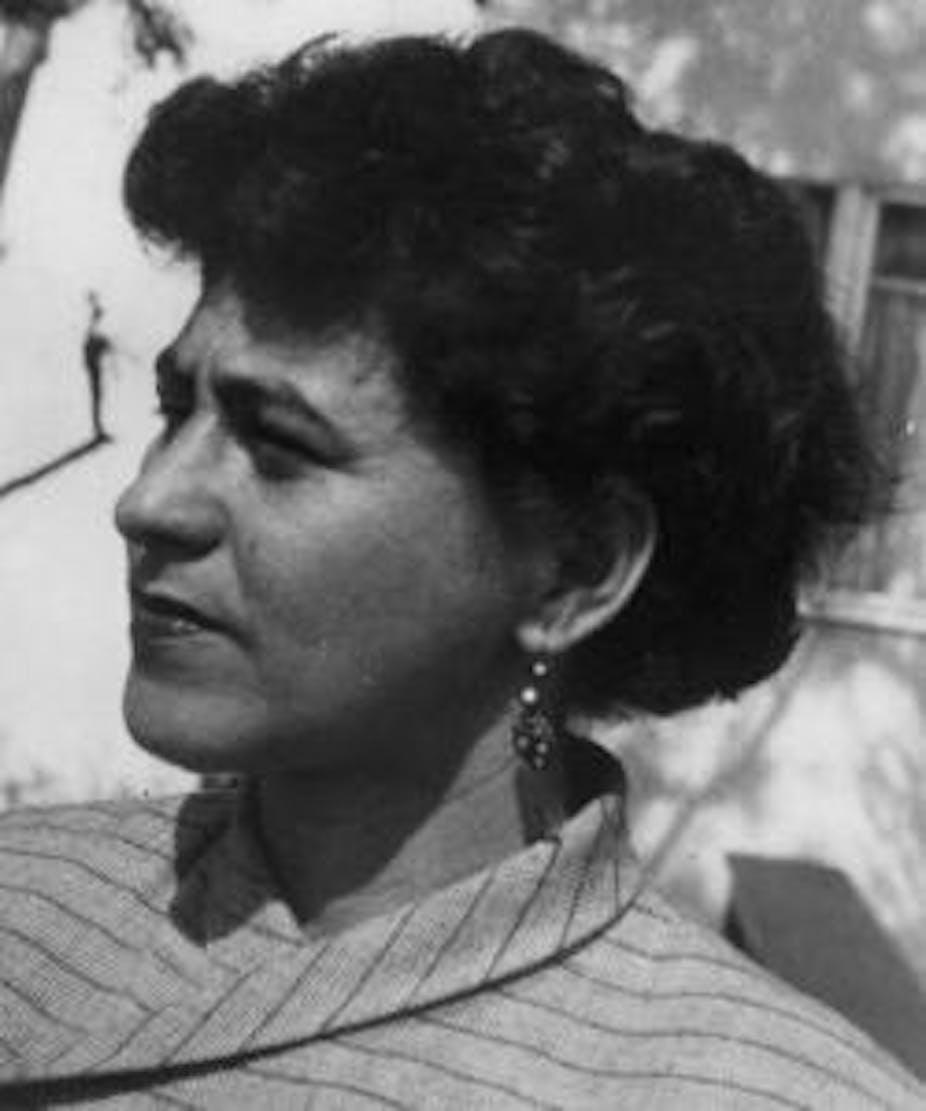The world’s a mess. How do thoughtful people make sense of it all? In this series we’ve asked a number of our authors to suggest a book, philosopher, work of art – or anything else, for that matter – that will help to make sense of it all.
The world we live in is a dangerous and confusing place. In my quest to make sense of it, I’m returning to Marxism and Freedom – 40 years after reading it for the first time.
It was written by the founder of the philosophy of Marxist-Humanism, Raya Dunayevskaya (1910–1987). I read the book for the first time in 1979: the year Margaret Thatcher was elected in Britain, and the formal beginning of the neoliberal counter-revolution. Dunayevskaya called it a “changed world”. At that point the book was already over 20 years old, but I found something refreshing about its engagement with Marxism as a living philosophy connected with daily life struggles.
My return to Marxism and Freedom here in 2019 has focused on some of its ideas that might help orient our thinking in the present. This, at a time when we’re facing the morbid stages of neoliberalism in its neo-fascist and authoritarian-nationalist forms: from Brazil’s Jair Bolsonaro to Donald Trump in the US, from Turkey’s Recep Erdoğan to Indian Prime Minister Narendra Modi.
Dunayevskaya (who was born Raya Shpigel but took her mother’s maiden name) was not an academic but a revolutionary intellectual schooled by organisations and their struggles. She joined the revolutionary movement in the United States as a teenager in the early 1920s, and was kicked out of the Communist Party at age 18 after asking for a discussion about Leon Trotsky. He was a leading Marxist revolutionary who was expelled from the USSR in 1929 after criticising Joseph Stalin.
Dunayevskaya joined the Trotskyist movement. She is probably best known as Trotsky’s Russian language secretary in Mexico, which is where he settled after his expulsion and where he was assassinated in 1940. By the time he died, Dunayevskaya had broken with Trotsky over his defence of the Soviet Union after the Hitler-Stalin pact of 1939.
She argued that Russia was a state-capitalist rather than a socialist society, and held that Marx’s theory of liberation had been transformed into its opposite by the Communist Party intelligentsia to justify a ruthless totalitarian system.
New passions
“Marxism is a theory of liberation or it is nothing” Dunayevskaya held in Marxism and Freedom. Concerned with the freedom of humanity and the destruction of human life under capitalism, one aim of Marxism and Freedom was to,
reestablish Marxism in its original form, which Marx called ‘a thoroughgoing Naturalism, or Humanism’.
Prefiguring what is now called intersectionality, she highlighted “new passions and new forces” that emerged in freedom struggles. She argued that activists and intellectuals must keep their ears open to these new voices and new articulations of freedom that had often been silenced or ignored.
Dunayevskaya considered black liberation movements the vanguard of historical freedom struggles in the United States.
She also declared the African and Asian decolonisation movements that developed after the end of World War II epochal, as they raised the question of human relations as a “totality of devotion to the struggle for freedom”.
The brilliance of Marxism and Freedom, and its re-articulation of Marx’s Marxism as a theory of liberation, is that it was written in collaboration with miners, autoworkers and students who contributed to “a new understanding”. The point was not only that people think, but also that people in struggles develop new ways of knowing through experience, dialogue and self-reflection.
The question of freedom was intimately connected to the question that every struggle needs to ask itself: what happens the day after the struggle has seemingly been won? In short, Dunayevskaya continually challenged activists to think beyond activism: to think not only of tearing down the old society, but also about creating a new one. She believed in questioning everything, especially the division between intellectual and physical labour.
A legacy of learning
All this was exciting to me as a 21-year-old who had already become cynical about programmatic socialist groups that often viewed movements as fodder to be mobilised. I probably didn’t understand it fully at the time, but I remember meeting Dunayevskaya in 1985 just after the year-long British miners strike had suffered an historic defeat.
When we met she had just completed a book Rosa Luxemburg, Women’s Liberation and Marx’s Philosophy of Revolution, the last part of her “trilogy of revolution” (her second book was the 1973 Philosophy and Revolution: From Hegel to Sartre and from Marx). Asked about love in an interview on International Women’s Day in 1984 she remarked:
I don’t think it’s correct for us to try and solve it for others. I think what we have to do is to create the conditions for everyone to be able to experiment with choices, in love.
When we met she spoke to me about the importance of worker-intellectuals to Marxist-Humanism. Here she included the black auto worker from Detroit, Charles Denby, the author of Indignant Heart: A Black Worker’s Journal. They met in the late 1940s and remained colleagues until his death in 1983.
When Stalin died in 1953 Denby phoned her. He wanted to tell her what the workers in the plant were saying:
I have just the man to fill Stalin’s shoes — my foreman.
Alive today
Marxism and Freedom remains alive to me in 2019. It’s not only because we live in an age of myriad crises that threaten humanity, but the book reminds humanity to keep our ears and minds open to new and often unthinkable revolts.
In this moment of violent suppression, new forms of struggle continuously emerge and reach for a future. It is here that the ideal and the real are revealed as being not far apart: where Marx’s humanism as a living body of ideas is enlivened by real movements for freedom.

